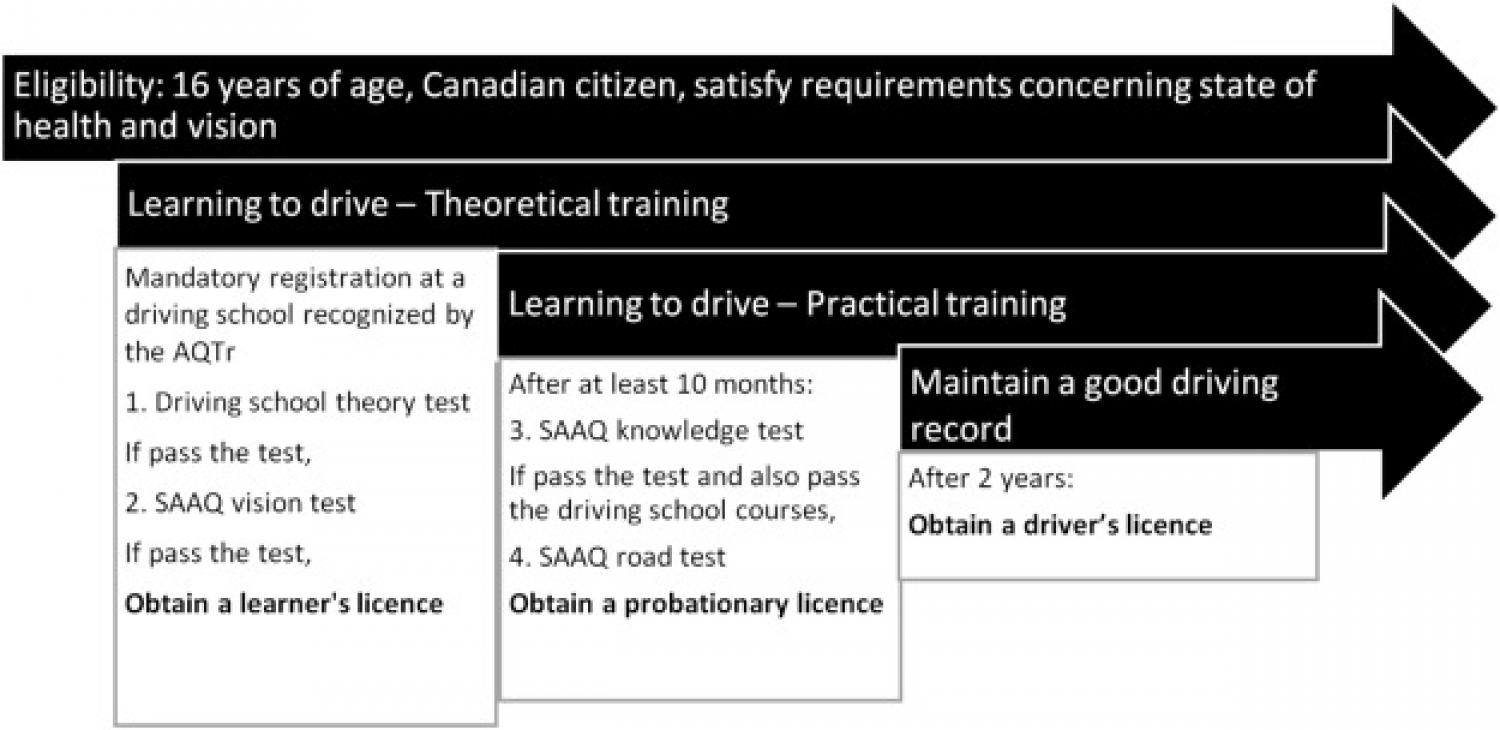
Elsevier, Transportation Research Interdisciplinary Perspectives, Volume 4, March 2020
Introduction: Driving is an important activity for the social participation of young people with physical and cognitive disabilities. Learning to drive, however, presents difficulties for this population. Innovative services have been developed in the province of Québec, Canada, but the extent to which they are evidence-based is not known nor are optimal parameters for learning to drive. Objectives: The aims of this study were to 1) explore users' views and preferences with respect to learning to drive; 2) create indicators based on science, experience, and users' views and preferences that can be used to evaluate driver education programs; and 3) use these indicators to measure the gaps between knowledge and practice in an existing adapted driver education program. Method: Based on an integrated knowledge translation model, this study used a qualitative and quantitative design consisting of three steps: 1) focus group meeting and telephone interviews with users, 2) definition and validation of criteria and indicators, and 3) chart audit. Results: 1) Users' needs and expectations were documented from the focus group meeting and three interviews. 2) Building on the results of step 1 and a review of the literature, including expert opinions on adapted driver's education, 34 quality indicators were created. These indicators were supported by information from the literature (42%), expert opinions (33%), and users' views (25%). 3) Forty charts from an existing program were audited and showed that the indicators are relevant to evaluate the quality of this type of program. Conclusion: These preliminary indicators were created to facilitate the implementation of new evidence-based adapted driver education programs. This entire initiative will make it easier for young adults with disabilities to obtain a driver's licence, which will ultimately foster more satisfactory social participation.
